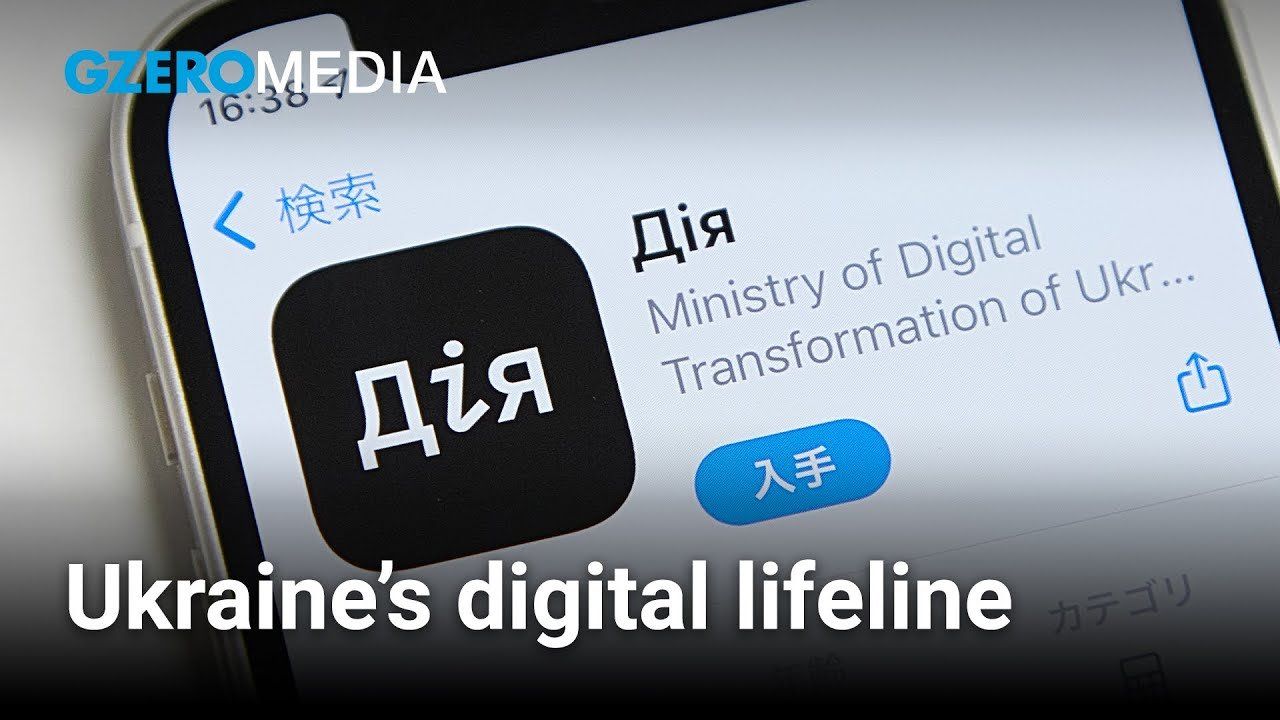September 10, 2023
In GZERO's livestream event presented by Visa, chief innovation officer of USAID, Mohamed Abdel-Kader shed light, on Ukraine's groundbreaking eServices platform known as Diia. This platform, he emphasized, has significantly strengthened the connection between the government and its citizens—a vital development for Ukraine, particularly amid the ongoing brutal war with Russia. Abdel-Kader say’s Diia has transitioned from primarily serving procurement and basic services to now facilitating reporting of property damage and unemployment status management during crises, which has been vital for providing immediate support to citizens and, equally important, rebuilding trust in government responsiveness.
Mohamed Abdel-Kader also highlighted that 19 million people use Diia and the frequency of interaction depends on individual needs and activities. Some might use it for tasks like obtaining a digital driver's license or paying taxes online. Additionally, Abdel-Kader emphasized the robust security measures in place, highlighting that user information is distributed across multiple servers, not stored on a single device, ensuring data safety, especially in the context of the ongoing conflict.
Lastly, Abdel-Kader noted that Diia's success has sparked interest from other countries looking to adopt a similar system tailored to their specific needs, promoting a global exchange of innovative solutions in the realm of digital governance.
To hear more about the challenges and opportunities that nation-states face when it comes to digitization, and how it could shape a more inclusive and resilient future, watch the full livestream conversation:
What Ukraine's digital revolution teaches the world
More For You
Bad Bunny during the Super Bowl LX halftime show press conference at Moscone Center.
Kirby Lee-Imagn Images
100 million: The number of people expected to watch the Super Bowl halftime performance with Bad Bunny, the Puerto Rican superstar and newly minted Album of the Year winner at the Grammys.
Most Popular
Think you know what's going on around the world? Here's your chance to prove it.
- YouTube
An imminent US airstrike on iran is not only possible, it's probable.
Americans are moving less — and renting more. Cooling migration and rising vacancy rates, especially across the Sunbelt, have flattened rent growth and given renters new leverage. For many lower-income households, that relief is beginning to show up in discretionary spending. Explore what's changing in US housing by subscribing to Bank of America Institute.
© 2025 GZERO Media. All Rights Reserved | A Eurasia Group media company.
